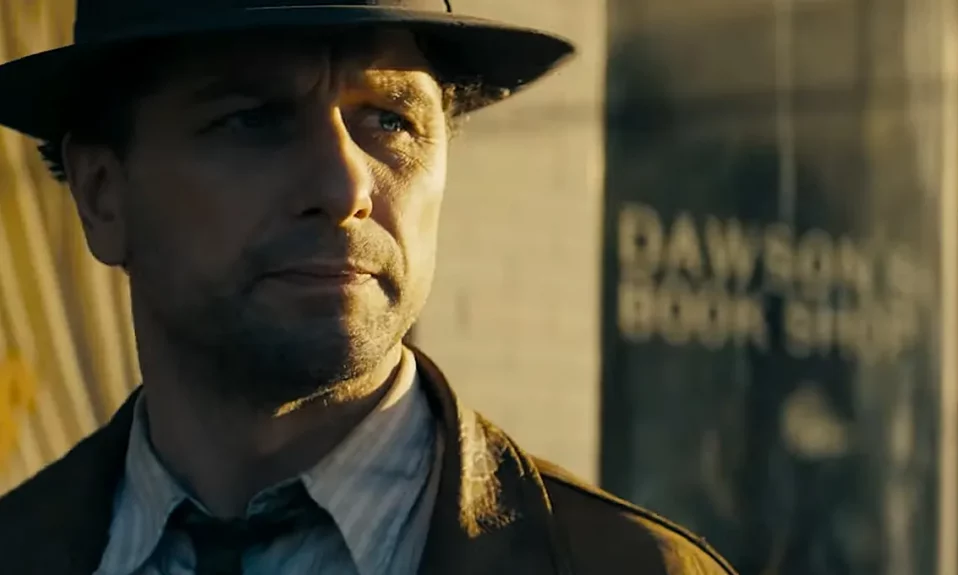In his essay ‘Black to the Future‘, Mark Dery, a white researcher, ponders the lack of Black voices in the realm of SciFi storytelling. He coins the term “afro-futurism”, giving it a wide enough range to include music, dancing, comic books, art and film, defining it as “speculative fiction that treats African American themes, and addresses African American concerns” through an exploration of SciFi, Fantasy, and technology. He went as far as to include the “human beatbox” phenomenon of the 1980s, and the breakdance style called “The Robot” as examples of ways Afro-Americans express techno culture in our community.
If you aren’t entirely sure what AfroFuturism is, there’s a reason for that: There isn’t a lot of it. And it casts a wide net. It includes the music of performers like Jimi Hendrix, George Clinton, Afrika Bambaataa, even more modern artists like Erykah Badu, Outkast, and Beyonce.


Out of these many branches, its deepest roots lie in literature. Novels like Rose Water (Tade Thompson), set in a Nigerian settlement on the edge of an alien biodome, The Unkindness of Ghosts (Rivers Solomon), set on a segregated spaceship carrying the last of humanity, and the better known Kindred (Octavia Butler), the story of a modern woman dropped into the time of Black slavery, forced to relive it, with no idea how to escape.
As for film, everyone points to Marvel’s Black Panther as the most popular example. I disagree. Although it technically encapsulates the tenets of AfroFuturism: Black characters, in a technologically advanced African country, that exhibits magic in a SciFi world, I contend that it’s still a Marvel movie. Which constrains the story to the “White gaze”.
A better example would be Brother from Another Planet, the 1984 film by writer/director John Sayles, starring Joe Morton (Justice League). Although not a Black director, the film is so intrinsically from the Black point of view, you’d never know it. It follows the experience of an alien (Joe Morton) who finds himself in Harlem, New York. We later find he is being chased by interplanetary law enforcers– Who happen to be the White versions of the Men in Black. I’d even go so far as to say that Men in Black was loosely based on this film.
Another great example is Sleight, written/directed in 2016 by J.D. Dillard, starring Jacob Latimore (‘The Chi’). This film would be easy to miss because its description on Netflix is as follows:
“Struggling to raise his little sister on his own, a young street magician turns to drug dealing, unaware of how ruthless his supplier can be.”
Does that in anyway sound like a movie that has SciFi or is afro-futuristic in nature? Here’s my description:
“A scientific savant has to resort to dealing drugs after he and his sister are orphaned. When he gets in over his head, he and his mentor build a machine that will get him out of trouble… And change the power structure of his world.”
Neither of the aforementioned films feel like fantasy; They just tell their stories as if the world we live in is a world where these things exist. Both completely grounded in Black culture, or at least, American Black culture.
But I think the true destiny of Afro-Futurism is in television. 2020 birthed several Afrocentric shows, all taking racial issues by the horns. For instance, HBO’s ‘Lovecraft Country’, written by Misha Green, produced by Jordan Peele (Get Out) and co-starring Jonathan Majors (Da 5 Bloods), Jurnee Smollett (Birds of Prey), and Wunmi Mosaku (Luther). Based on the 2016 novel by Matt Ruff, which in turn was based on the collective works of author H.P. Lovecraft, the series pairs outrageous aspects of magic, science, and mysticism with the equally outrageous environment of the American Jim Crow era.
Second on the list is another HBO series, Watchmen. Though not solely told as a Black story, Watchmen in anchored by them. Written/produced by Damon Lindelof, and starring Regina King (‘Ray’), the show is based on the 2009 film also entitled ‘Watchmen’, which itself was based on the 1986 graphic novel of the same name. The show is centred around the Tulsa Massacre of 1921 and follows the exploits of self-appointed gods and heroes while wrestling with the likes of crime, betrayal, clones, and mind control.
With all this in mind, I think Mark Dery’s original question is still valid: Why aren’t there more Black voices in AfroFuturism? Many of the projects I mention have their origins in White America. But my theory and my answer to his question is this: HOPE. Many in the Black Community cannot stretch our imaginations far enough away from the horrors of our realities to see a future at all. To quote a few lines from Lin-Manuel Miranda’s ‘Hamilton’:
“I never thought I’d live past twenty. Where I come from, some get half as many. Ask anybody why we livin’ fast, and we laugh, reach for a flask… We have to make this moment last.”
But, we’re finally starting to shake off the demoralization that racism has wrapped like a blanket around our shoulders. And many of us are opening our eyes to see, not just the pain of the past, but the power of the future. As we step into a literal Golden age for this genre, where our stories are told by us, for us, we’re breathing new air, and we are indeed going BLACK to the FUTURE.
Also Read: The Rise of Nigerian-British Filmmakers













